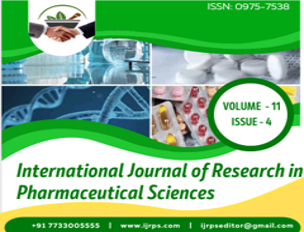Abstract
Pregnancy Induced Hypertension (PIH) is a syndrome of hypertension with or without proteinuria (Preeclampsia) proteinuria and oedema. With additional symptoms like coagulation abnormalities and liver function abnormalities. Preeclampsia is a severe multi-systemic pregnancy-specific, hypertension disorder usually occurring after 20 weeks of gestation, characterised by new onset of hypertension and proteinuria, and it regresses after delivery of the concepts. The present cross-sectional case-control study was carried out in the Department of Pathology of a tertiary care hospital. Study of Coagulation profile in Preeclampsia and Eclampsia comprised of 258 cases which were categorised as preeclampsia, eclampsia and control group with 86 cases in each group. Results-Majority of occurrences were noted in 21 to 25 years of age group, i.e. 45 patients of Eclampsia (52%), Eclampsia (67.44%) and Severe Preeclampsia (63.95%) were found to be more common in Primigravida patients. In Eclampsia group, 40% had mild thrombocytopenia. In Severe preeclampsia group, 37% had mild thrombocytopenia. In Mild preeclampsia group, 67% (32/48) cases showed platelet counts within a healthy range. In Eclampsia group, (13/86), i.e., 15% had prolonged bleeding time (>9 mints). In Severe preeclampsia group, (3/38), i.e. 8% had prolonged clotting time (>11mins). In Mild preeclampsia group and control group, none had prolonged clotting time (> 11mins). In Eclampsia group, (37/ 86), i.e., 43% had prolonged prothrombin time. Study concluded that coagulation profile could help to assess the severity of Preeclampsia and Eclampsia and thus can help to reduce complications if treated early.
Full text article
Authors

This work is licensed under a Creative Commons Attribution-NonCommercial-NoDerivatives 4.0 International License.

